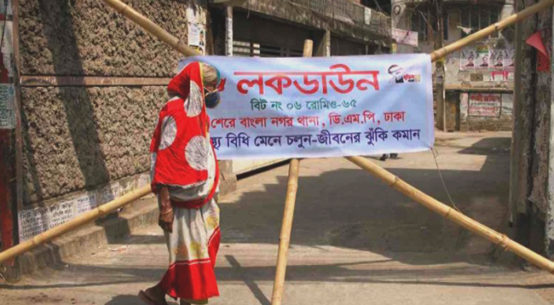Prime Minister Sheikh Hasina Thursday said Rooppur Nuclear Power Plant (RNPP) is another step in building smart Bangladesh.
“Bangladesh will be turned into a smart country in future, and the nuclear power plant is another step towards building that Smart Bangladesh,” she said at the RNPP Graduation Ceremony at the plant site in Ishwardi, Pabna, joining virtually from her official residence Ganabhaban.
Russian President Vladimir Putin joined the ceremony virtually from Kremlin, Moscow.
Sheikh Hasina said the design and construction of the plant is being carried out keeping in mind that the nuclear power plant is not damaged during any kind of disaster.
In this connection, she also mentioned that the Russian Federation has promised to take back the spent fuel of the RNPP to their country.
“We’ve signed an agreement with the Russian Federation for the management of spent fuel. The Russian Federation will take this spent fuel back to their country,” she added.
“We will use nuclear power to protect peace,” said the Prime Minister, expressing her firm commitment to the complete elimination of nuclear weapons worldwide and to the implementation of the Treaty on the Prohibition of Nuclear Weapons.
Director General of the International Atomic Energy Agency (IAEA) Rafael Mariano Grossi also spoke joining the event virtually from Vienna.
With Science and Technology Minister Architect Yeafesh Osman in the chair, ROSATOM Director General Alexy Likhachev spoke at the event.
At the outset, an audio-video documentary on the manufacturing and delivery of the first batch of nuclear fuel for RNPP was screened, while RNPP Project Director and Managing Director of NPCBL Dr Md Shawkat Akbar made introduction of the RNPP.
Science and Technology Secretary Md Ali Hossain delivered welcome address.
Later, the certificate of fuel delivery was handed to the Prime Minister Sheikh Hasina on behalf of the Russian President Vladimir Putin, while the model of the fuel assembly was handed over to Science and Technology Minister Architect Yeafesh Osman by ROSATOM Director General Alexy Likhachev.
ROSATOM is building the 2400-megawatt power plant. Its first unit of 1,200MW capacity is set to be operational next year, while another unit will be functional in 2025.
The first consignment of nuclear fuel (Uranium rods) for RNPP was reached here by a special flight on September 28.
According to the project details, the government is expecting to commission the first unit of RNPP in September 2024 and the second in mid-2025.
There are 30,000 people, including 7,000 professionals, working on the project. The project is expected to operate for 60-80 years.
Officials said RNPP will be able to take Bangladesh to unique heights by entering into the nuclear club as it will also be able to play a leading role in meeting carbon emission reduction targets. At the same time, it will reduce the cost of power generation in a flash.
The project layout said the RNPP will generate 2,400 MW of electricity every day.
The nuclear fuel is being produced by ROSATOM’s associate company TVEL Fuel. Various countries around the world purchase nuclear fuel from them.
According to the World Nuclear Association website, the countries which are using nuclear energy include the US, China, France, Russia, South Korea, Canada, Ukraine, Germany, Japan, Spain, Sweden, Belgium, UK, India, Czech Republic, Finland, Switzerland, Bulgaria, Pakistan, Hungary, Slovakia, Brazil, South Africa, Mexico, Romania, Argentina, United Arab Emirates, Belarus, Slovenia, the Netherlands, Iran and Armenia.
Once the nuclear fuel is loaded into the power plant’s reactors, power can be produced for one year. After that, the fuel will have to be reloaded into the reactor.
In October 2021, Rooppur unit-I was almost completed, with the placement of the reactor within the unit’s structure. It was set up in accordance with the IAEA standards.
The reactor is the main component of a nuclear power plant. The second unit’s reactor was set up in October last year.
Bangladesh got the licence for nuclear fuel import and storage at the Rooppur project after fulfilling all necessary requirements under the IAEA’s guidelines.
The IAEA during its general conference in Vienna last month made Bangladesh a board member of the IAEA.

